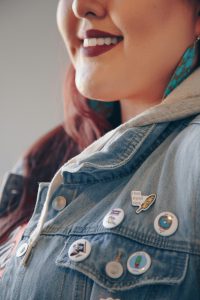Anishnaabemowin and Key Terms
Anishnaabemowin – A First Nations Shared Language

Anishnaabe (or sometimes Anishnaabeg, Anishnaabek, Nishnaabe) are a group of First Nations people present in the northern US states, the Great Lakes region, all the way west to the prairies, and all the way north in Ontario. Three nations included in the Anishnaabe confederation are Ojibwe, Odawa, and Potawatomi. These are the Indigenous cultural groups that surround the Barrie area.
Although each nation has its own language, Anishnaabemowin is a shared language.
Try Some Anishnaabemowin Words!
Go to Ojibwe.net’s Introductions page and listen to the pronunciation of “hi”, “hello” and “it’s a good morning”. Listen as many times as you need and then practice!
- Hi! = Aanii
- Hello! = Boozhoo
- It’s a good morning = Minogizhebaawagad
Next, Go to the Phrases for Babies & Toddlers page link and listen to the pronunciation of the terms below. Listen as many times as you need and then practice!
- Hello! = Boozhoo
- Thanks! = Miigwech
- I shall see you! = Giga-waabamin
- Yes = Eya’ (females)/En’ (males)
- No = Gaawiin
- You’re doing good! = Giminochige
There are other expressions pronounced in this audio, but focus on the ones above. You can follow the list on the website above.
How many of these words can you remember for next week?
Key Terms
Instructions
Watch the next video and answer the following questions:
- What does “Indigenous” mean?
- How many people consider themselves as Indigenous today in Canada?
- What do you think the video means by ‘nation’?
- What words are NO longer used to refer to the first people of Canada?
- What are the 3 main groups of Indigenous people? Add a definition for each.
- Approximately, how many First Nations are there?
- Where did the word ‘Canada’ come from and what does it mean?
Watch The word Indigenous – explained (2 mins) on YouTube
Video source: CBC Kids News. (2019, March 26). The word Indigenous — explained l CBC Kids News [Video]. YouTube. https://www.youtube.com/watch?v=CISeEFTsgDA
Course Key Terms
Practice the following key terms using these flashcards. Read the word, guess the meaning, and turn the card to see if you’re correct! You will have a quiz on these terms in Week 2, and will use these terms for the course.
Course Key Terms – Text version
Read the word and try to guess the meaning.
- Indigenous
- First Nations
- Metis
- Inuit
- time immemorial
- colonialism
- colonization
- Anishnaabe
- Ally
- Treaty
Check your Answer in footnote[1]
Activity source: “Course Key Terms” by Sari Martin, licensed under CC BY-NC 4.0.
Attribution
Except where otherwise noted, this page is written by Sari Martin, licensed under CC BY-NC 4.0.
-
- adjective - related to the earliest known people inhabiting or existing in a land especially before colonists (other people arriving)
- one of the 3 main groups of Indigenous Peoples of Canada other than Inuit or Metis
- People with Indigenous and European descent. One of the 3 Indigenous groups in Canada.
- Indigenous people of northern Canada. One of 3 Canadian Indigenous groups.
- a point in time in the past before memory or recorded history
- the practice of taking political control over another country occupying it
- establishing control over Indigenous people of an area
- The Anishinaabe are a group of culturally related Indigenous peoples present in the Great Lakes region of Canada and western Canada, and the United States.
- An ally is someone who is willing to learn, question and reflect. It also means that you challenge and work towards breaking down the barriers that continue to violate Indigenous communities.
- an agreement or arrangement made through negotiations

